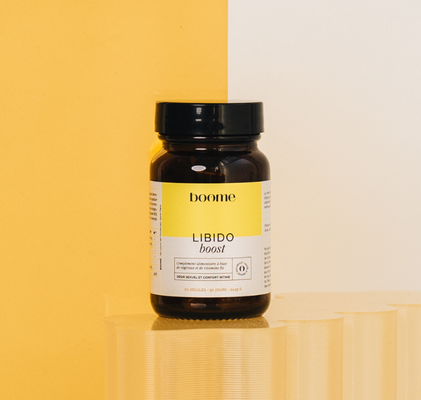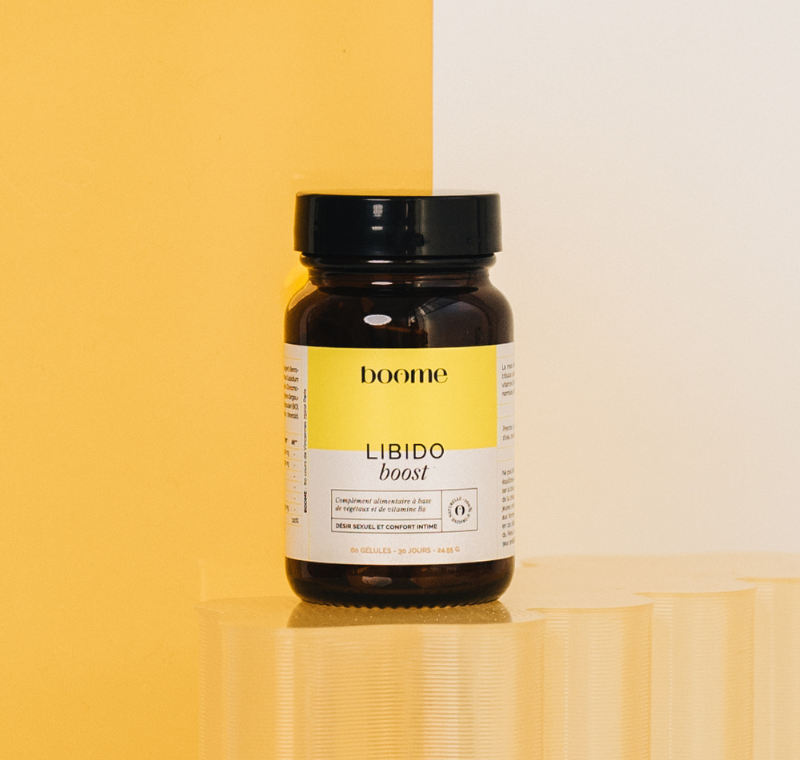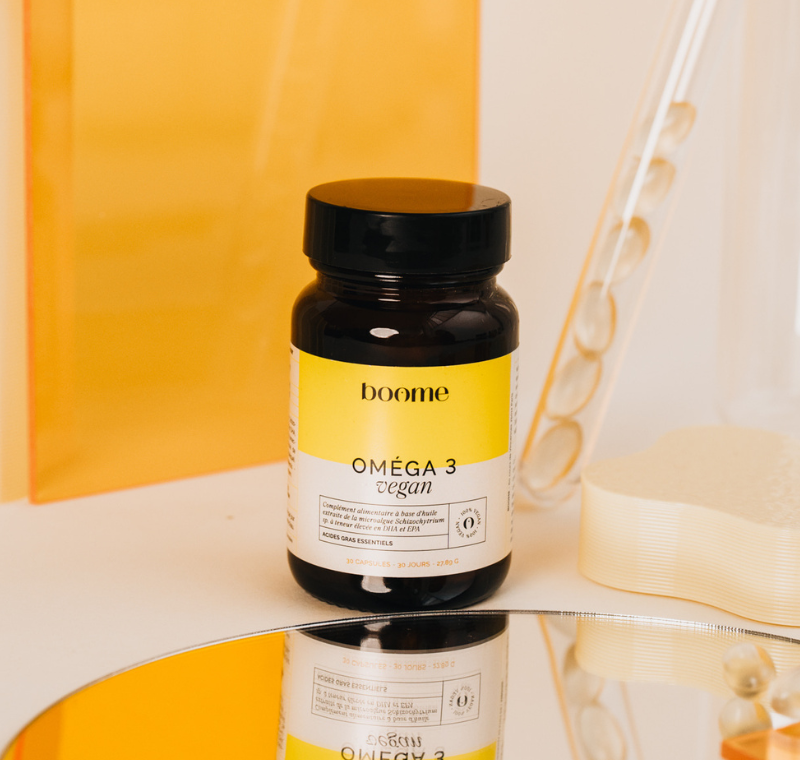
You're probably familiar with menopause, but... Are you familiar with premenopause or perimenopause? A little-known subject, it's THE important period that precedes the gradual cessation of a woman's cycles. Irregular periods, night sweats, risk of cardiovascular disease... Certain symptoms can disrupt your daily life. And even influence intimate aspects of your life, such as sexual relations. So if you've been wondering about the menopausal transition or which hormone treatments to consider, you've come to the right place. This article will guide you to better understand this period and regain control of your well-being.
What is premenopause or perimenopause?
Premenopause, also known as perimenopause, is a natural transitional phase in a woman's life. It is often marked by significant hormonal fluctuations that herald the arrival of menopause and the end of menstruation.
What is the age of premenopause and its first symptoms?
For most women, premenopause begins between the ages of 40 and 45. Your hormone levels then undergo major changes. Your ovarian follicles must adjust their work rhythm, as the production of estrogen and progesterone decreases… Until you reach menopause (which occurs on average between the ages of 45 and 55). According to Livi , during this transition period, 80% of women experience at least one of these unpleasant symptoms:
- hot flashes;
- night sweats;
- irregularity of cycles;
- heavier (or less!) menstrual cycle;
- vaginal dryness;
- decreased bone density;
- joint pain and risk of osteoporosis;
- urinary tract infection;
- risks of stroke;
- sleep disorders.
The duration of this transition phase, however, remains very variable: it takes between 2 and 4 years before menopause is fully established.
It should also be noted that 1% of women are affected by the hormonal fluctuations of premenopause before the age of 40: this is known as early menopause.
What test can you take to find out if you are in premenopause?
Unfortunately, there is no specific hormone test (yet!) to diagnose menopause. This is because hormone levels fluctuate too much during this period to be accurately analyzed.
However, if you have any doubts, you can consult your doctor. They will be able to ask you the right questions and perform an examination to identify the cause of your symptoms.
In some cases, he may also offer you a hormonal assessment for women .
Perimenopause Symptoms: What You Need to Know
Spoiler alert: Symptoms of perimenopause (or early menopause) can vary from woman to woman. The good news is that they're easily recognizable.
Hot flashes and night sweats
Among the most common symptoms in women's lives are... hot flashes and night sweats! Yes, this is due to the decrease in hormone levels (particularly the decrease in estrogen and the deficiency in progesterone), which disrupts the body's temperature regulation system.
These vasomotor symptoms are manifested by a sudden surge of heat, followed by excessive sweating, often in the upper body.
Night sweats, on the other hand, disrupt women's sleep and lead to chronic fatigue in some of them.
Vaginal dryness and low libido
Declining estrogen levels in premenopausal women often lead to vaginal dryness, which can make intercourse uncomfortable or even painful.
In addition to physical discomfort, these changes can lead to a period of vulnerability, affecting the couple's relationship and self-esteem.

Achat express
Irregular or heavy periods
Before they finally stop, menstrual cycles often become unpredictable. The duration of periods in premenopause may then vary more frequently.
Some premenopausal women also experience an increase in menstrual flow, with bleeding that is heavier or longer than usual. These irregularities are due to hormonal changes, linked to the decrease in female hormone levels (estrogen and progesterone).
Again, these bothersome symptoms can be upsetting, but they are a normal part of the menopausal transition.
Be careful, though! This doesn't mean you're infertile. So, find out about the right contraception for menopause in your situation.
Sleep and mood disorders
Sleep disturbances are common during the premenopausal period. Insomnia or nighttime awakenings can lead to accumulated fatigue, which affects women's quality of life. Many women experience significant mood swings:
- irritability;
- anxiety ;
- even depression.
Guess who's to blame? Yes, hormones again! Because hormone production (such as serotonin) directly influences mood-related neurotransmitters.
This is why it is important to pay attention to these psychological symptoms to prevent them from getting worse.
Urinary weakness
These unwanted symptoms also include a weakening of the urinary tract, which is also linked to the decline in hormones in premenopausal women. This hormonal upheaval can affect the pelvic muscles and bladder. This can lead to mild urinary incontinence—especially during physical exertion such as coughing, laughing, or exercise.
If this urinary incontinence bothers you, do not hesitate to consult your doctor: he may consider hormonal treatment adapted to your situation.
Weight gain and slowing metabolism
Perimenopause is often accompanied by weight gain, particularly around the abdomen. This is because the decline in hormones (including the female hormone estrogen) leads, among other things, to a slowing of the metabolism.
With age, muscle mass decreases and the body tends to store fat more easily. Some premenopausal women experience this period with great frustration, especially if they haven't changed their eating habits or exercise routine.
How to manage premenopause symptoms on a daily basis?
Good news! There are plenty of ways to better navigate the menopausal transition on a daily basis:
- Choose foods rich in calcium and vitamin D to support your bone density and limit joint pain. Don't skimp on sources of Omega 3 to help regulate moods. Conversely, reduce your consumption of alcohol and spicy foods, which can trigger certain unwanted symptoms.
- When it comes to physical activity, regularly engage in gentle exercise, such as yoga or brisk walking. This will help you maintain an active metabolism and manage stress.
- Sleep in light clothing to limit nighttime hot flashes. This will help you get better quality sleep.
- Do you like natural remedies? Now's the time to indulge! Herbal infusions, such as sage or red clover, can also relieve vasomotor symptoms. You can also take an iron supplement to quickly perk you up.
- If you suffer from vaginal dryness, there are some simple solutions, such as lubricants to improve your sexual relations or appropriate hormone therapy (prescribed by a doctor), which can really reduce the appearance of these symptoms.
However, if all of these symptoms become too bothersome, don't hesitate to consult a healthcare professional. They may suggest hormone replacement therapy (HRT) or localized hormonal treatments for vaginal dryness.
Perimenopause, or the menopausal transition, is a natural phase that can bring its share of physical and emotional changes. By better understanding the general symptoms and adopting appropriate solutions, you can get through this period more calmly. Keep in mind that healthcare professionals remain available to prescribe medical treatment, if necessary!










